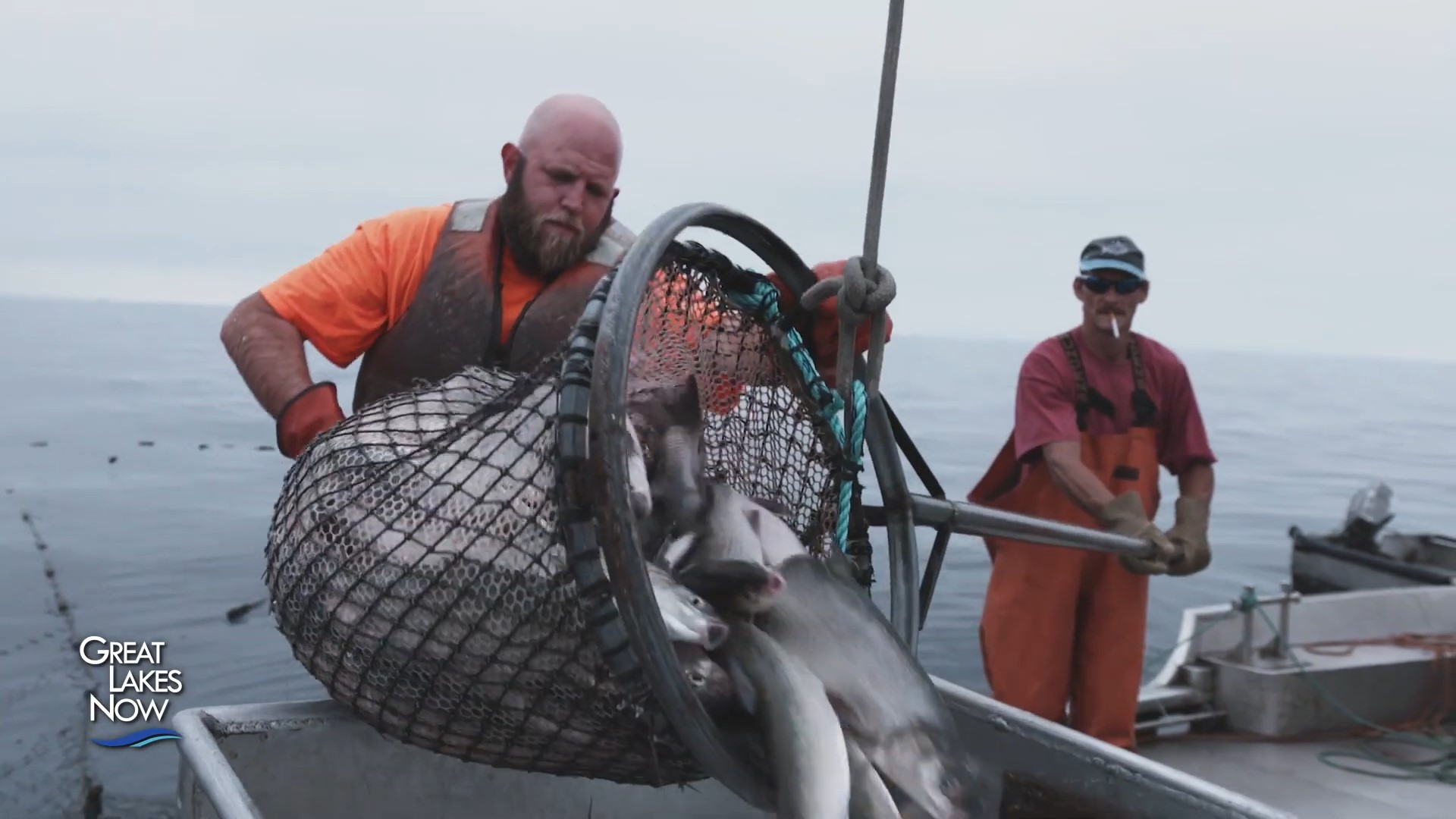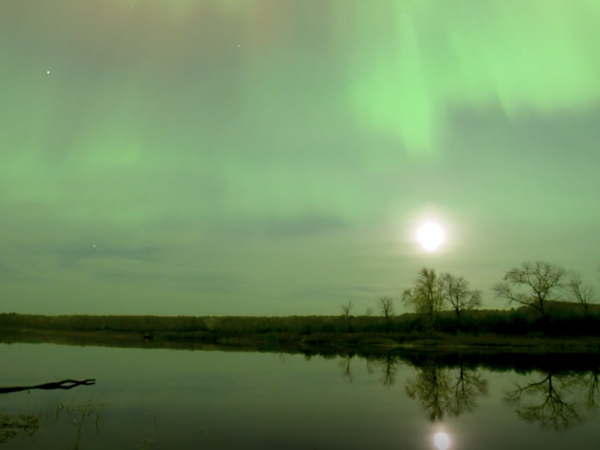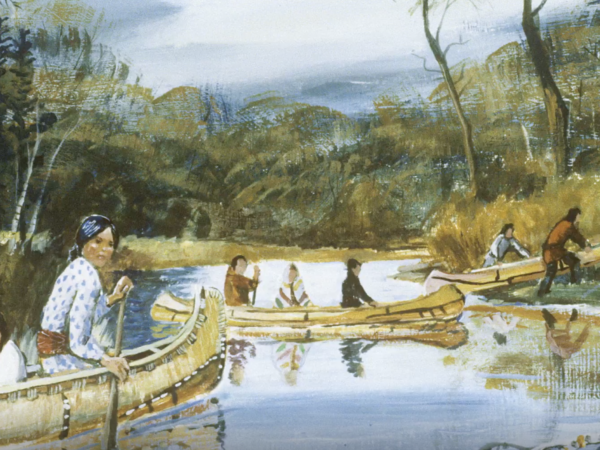
After being snubbed in 2020, the folks who make their living by fishing the Great Lakes – both commercially and for sport – have been included in the latest round of federal relief from the economic ravages of COVID-19.
With the second round, passed Dec. 27 and known as the Coronavirus Response and Relief Supplemental Act of 2021, Great Lakes tribal fisheries were included in the $30 million allotted for tribal fisheries nationwide. Another $15 million was set aside for “non-tribal commercial, aquaculture, processor and charter fishery participants” in Great Lakes states.
Neither group was included in the massive Coronavirus Aid, Relief, and Economic Security Act that passed in March 2020, even though $300 million was specifically earmarked for U.S. fisheries. That total included about $6 million to Federally Recognized Tribes on the West Coast and in Alaska – and none to Tribes who fish the Great Lakes.
“These are small businesses, and people have had to lay off crews, had markets taken from them,” said Marc Gaden, the communications director and legislative liaison at the Great Lakes Fishery Commission. “Just like restaurants and other industries we’re more aware of, fishing is made up of small businesses that are highly dependent upon supply chains and customer demand, when all that gets disrupted it’s not hard to see how people’s lives get turned upside down.”
Catch up with more commercial fishing news on Great Lakes Now:
Family-owned fishing businesses displaced by waterfront developments on Great Lakes
Fall Brawl: Sheffield Lake fishing derby inspires intense angling
API key not valid. Please pass a valid API key.Michigan’s multifaceted fishing industry
Michigan’s commercial fishery is divided between state-licensed operators and Native operators who fish commercially under treaties signed in the 1800s. Great Lakes commercial fishers supply whitefish to restaurants and markets across Michigan, as well as Chicago and New York. In 2018, Michigan’s commercial fishery – both Tribal and non-Tribal – netted nearly 4 million pounds of whitefish, according to the Michigan Department of Natural Resources.
The industry also includes fish markets, processors, transporters and all those who supply those businesses with everything from fuel to equipment. Add in charter fishing and its associates, and the Great Lakes fishing industry is valued at somewhere near $7 billion annually, according to the Great Lakes Fishery Commission.
For communities in northern Michigan, commercial fishing is a hub for tourism as well. That’s the case for Brimley, home of the Bay Mills Indian Community, one of five tribes that fish commercially under the Chippewa-Ottawa Resource Authority. Those tribes generate between $15 million and $30 million from commercial fishing annually, depending upon such variables as weather, market prices and catch, according to Whitney Gravelle, a tribal attorney and citizen of the Bay Mills Indian Community.
Or at least they did before COVID-19.
“With the shutdown of restaurants and the greater tourism industry, it’s not only the fishery that has been impacted, but also the community as a whole. From the boat to processing the fish to the restaurants, that’s 150 direct and indirect jobs,” she said. “The Tribally licensed fishery provides fish all across Michigan, and in the process they purchase fuel and other small goods. That entire interconnected network tied to Tribal fishing has been disrupted.”
Michigan is also home to a non-tribal commercial fishing fleet that is down to 13 operators. In addition to the pandemic, non-tribal commercial fishers are fighting with the state over rules that they say restrict their fishing so severely that they could ultimately go out of business entirely.
Those rules include closing the historically prime whitefish month of October on lakes Michigan and Huron, and limiting netting to 80 feet of water – down from previous allowed depths of 150 feet – effectively eliminating fishing in summer, when whitefish seek deeper, cooler water.
The industry began to feel the pinch of COVID-19 almost immediately: Its arrival coincided with retreating ice, so restaurant shutdowns left limited markets for fish, said Amber Petersen. Petersen owns the Fishmonger’s Wife fish market in Muskegon (and also happens to literally be a fishmonger’s wife: her husband and his family are commercial fishers).
Now, a shortened fishing season looms.
“Where it sits today, it looks like we will lose income from June (2020) through March (2021),” she said. “If we get two months of fishing, we have no choice but to fish hard. This is a family business that has been around for 90 years, but from there we might have to find other income. Seventy percent of my sales are based on my husband’s family’s catch, from April through October. That’s a huge, huge business shift.”
Getting the Great Lakes included in CRRSA was just the beginning. Now comes the harder work of figuring out how to access the money. The federal National Oceanic and Atmospheric Administration was responsible for distributing CARES funds allotted last year and is still accepting applications for those funds. It could be months before CRRSA funds reach Great Lakes fishers.
“There’s an education aspect to this too,” said Gaden, of the Great Lakes Fishery Commission. “I’m sure a lot of people who fish are just as confused as I am about how they’re able to access those relief funds. Hopefully they’ll learn about how it was done the first time.
“It’s sort of like if your glass is half full, the Great Lakes may be getting their money at the same time (as the prior group) because it took people so long to figure out how to do this. Hopefully they’ll get it ironed out.”
Petersen isn’t exactly holding her breath.
“I’m not hanging my hat on that,” she said. “If I had to pick between buying a lottery ticket and getting money from the CARES Act, I feel like I’d be just as confident buying the lottery ticket.”
Dave Spratt is a freelance writer and CEO of the Institute for Journalism & Natural Resources.
Learn more about commercial fishing in the Great Lakes on Great Lakes Now:
Great Lakes Fishery: Commercial vs. recreational conflict
Great Lakes Fishery: The start of the industry and the fall of fish populations
Warm weather has ice fishing industry on thin ice
The Age of Nature: Humanity’s relationship with nature in the Great Lakes region and beyond
API key not valid. Please pass a valid API key.Featured image: Bay Port Fish Company from Great Lakes Now Episode 1008




